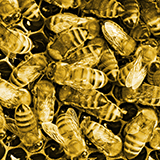| Antonella Tramacere
Georg-August Universität Göttingen, Germany
Spring Term 2019
Antonella is a researcher at the Department of Linguistic and Cultural Evolution of the Max Planck for the Science of Human History in Jena. She was previously affiliated with the Lichtenberg Kolleg, and the German Primate Center in Göttingen (Germany).
She analyses comparatively the development of the Mirror Neuron System (MNS), to address the role of neural phenomena in understanding cultural traits, like imitation, language and self-awareness, and to ultimately build models of bidirectional relationship between culture and biological mechanisms. The originality of the project consists not only in its strong comparative features (human and non-human primates, and songbirds) but also in how it is up-to-date and attentive to recent developments in neurobiology, which show how different parts of the nervous system (not only the central, but also the autonomic and enteric ones, together with the microbiome) have an influence on the development of socio-cultural cognition. The work overall claims for a theoretical integration which can improve analytic and predictive power of future experiments.
Some of these analyses have already taken the form of published articles:
Tramacere, A., & Ferrari, P. F. (2016). Faces in the mirror, from the neuroscience of mimicry to the emergence of mentalizing. Journal of Anthropological Sciences, 94, 1-14.
Tramacere, A., Pievani, T., & Ferrari, P. F. (2017). Mirror neurons in the tree of life: Mosaic evolution, plasticity and exaptation of sensorimotor matching responses. Biological Reviews, 92(3), 1819-1841.
Tramacere, A., & Moore, R. (2018). Reconsidering the role of manual imitation in language evolution. Topoi, 37(2), 319-328.
Tramacere, A., Wada, K., Okanoya, K., Iriki, A. & Ferrari, P.F., Auditory-motor matching in vocal recognition and imitative learning. Neuroscience, in press.
Howell, B., & Tramacere, A., Putting microbiome research in a developmental context: focus on breastmilk. Brain and Behavioral Science, in press.
|


![]()
![]()
![]()
![]()
![]()
